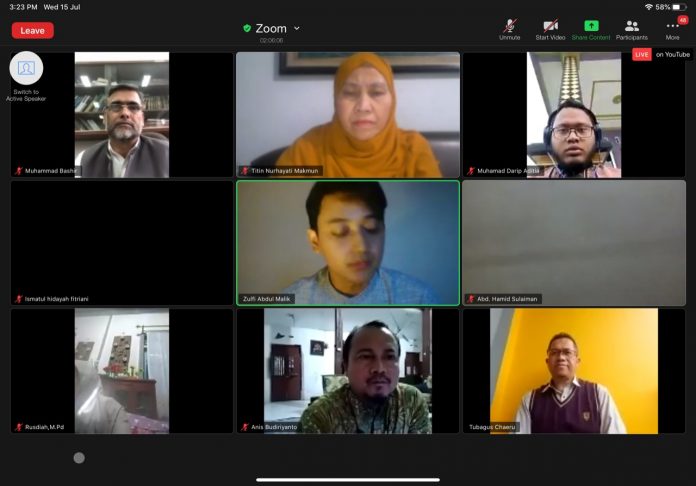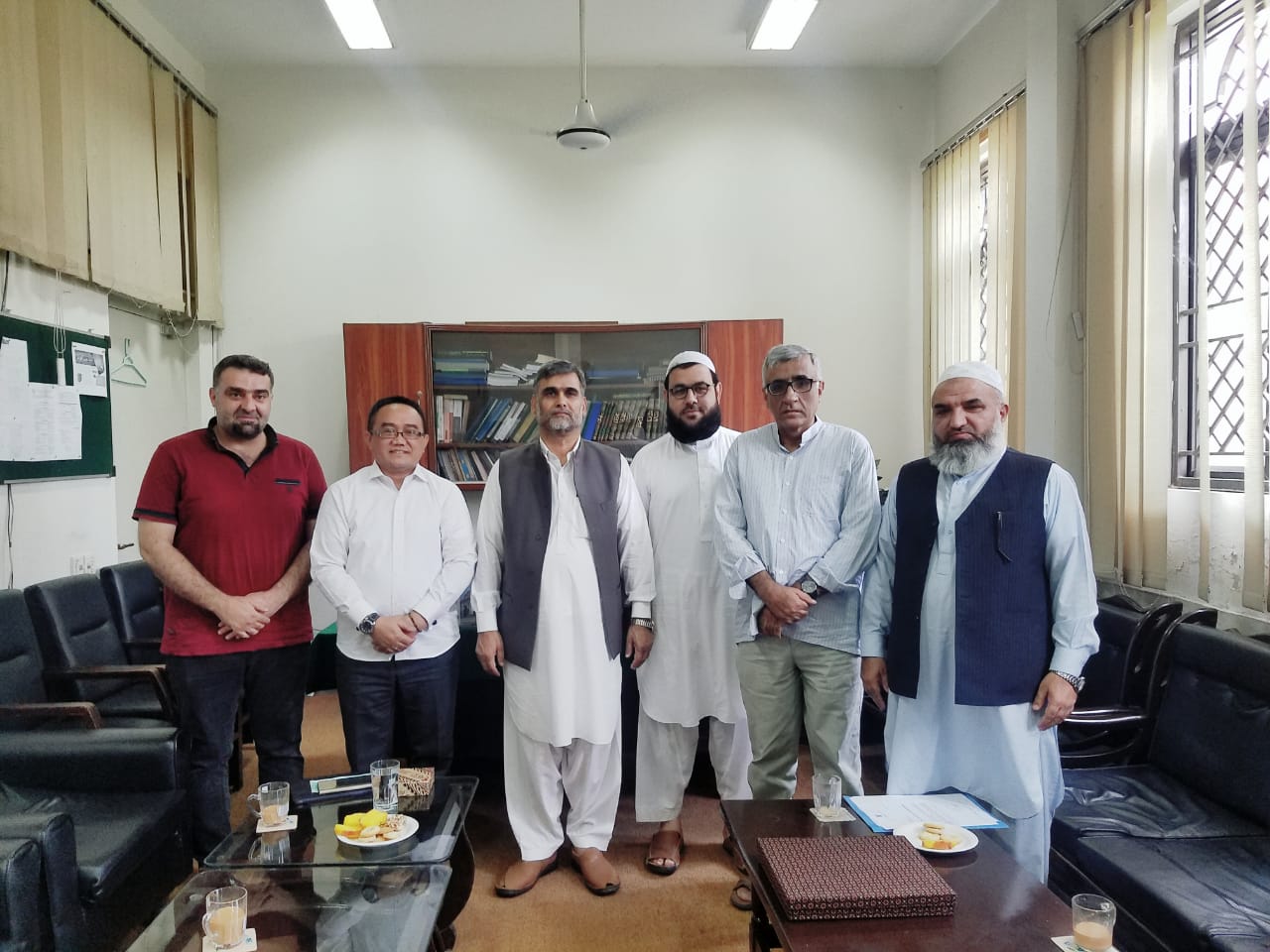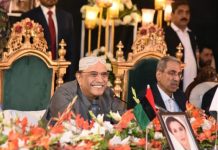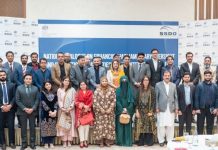Deny Tri Basuki, Counsellor, Indonesian Embassy, Islamabad, called on Dr. Mohammad Bashir and congratulated him on the very productive and successful Webinar
ISLAMABAD (DNA) -The International Islamic University, Islamabad and the University of Padjadjaran, Bandung, Indonesia, have shown great enthusiasm in identifyingrange of areas of aptitude and excellence to establish strong academic cooperation between themand find ways for the development of the graduates of Arabic Literature so that they are able to prove their mantle in the challenging situations of competition and progress economically in their respective diverse fields. The upbeat prospects of academic cooperation came under discussion at an International Webinar organized by the University of Padjadjaran in collaboration with the Indonesian Embassy, Islamabad, on July 15, 2020.
Dr. Mohammed Bashir, Dean and Chairman of Department of Linguistics, IIUI, Islamabad, was among the keynote speakers who attended the Webinar and delivered his lecture on “Arab Linguistic Studies in Non-Arab States: Pakistan’s Experience”.
The Webinar which discussed the importance and scope of Arabic Literature in the post COVID 19 world, was hosted by Dr. Hj. Titin Nurhayati Ma’mun, Head of Arabic Literature Department, Faculty of Cultural Studies, UNPAD. On the occasion, Dr. Tajudin Noor, Professor of Linguistics in Arabic Literature, Faculty of Cultural Studies UNPAD delivered the lecture on “Arab Linguistic Studies in Non-Arab Countries: Indonesia’s Experience”
The speakers agreed that on the importance of mastering the Arabic language for the Islamic studies and said that the Holy Quran, the Sunnah and other authentic Islamic literature was preserved in the Arabic language and the meticulous knowledge of Arabic language was indispensable to understand and follow them correctly.
Dr. Bashir in his lecture apprised the participants about the contribution the IIUI has made in imparting education of Arabic Language and Islamic Studies in Pakistan. He highlighted that the International Islamic University in Islamabad which was founded back in 1980 with just three departments had come a long way and today had the most comprehensive faculties with more than forty departments in the scientific, technological, social, human, and languages fields with the number of students exceeding twenty five thousand annually.
He informed that the teaching of Sharia Sciences and other Islamic sciences and studies were thoroughly taught in the Arabic language and it was also compulsory subject for all the students at all the existing faculties and departments of the University.
Dr. Mohammad Bashir elaborated that the university also organizes three levels for Arabic Language courses, namely degree level, diploma level, and higher diploma level. While highlighting some statistics, he said that in most cases those who enrolledfor the courses were doctors, engineers and employees from government ministries, private companies, entrepreneurs, businessmen, professionals, traders and university students.
The speakers realized that Arabic language which was spoken in over 22 countries with population of over436.4 million offered some great opportunities to the Arabic Literature graduates in pursuing their careers in international relations, foreign service, international organizations, multinational companies, business & trade and service sector.
They also expressed unanimity of views that demand for people fluent in Arabic was reasonably good and it could steadily rise locally and internationally. There were many employment opportunities for the Arabic speakers in the fields including e-commerce, information technology, Foreign Service, aviation and tourism, banking and finance, education and journalism and marketing and consultancy.
The speakers during discussion session also agreed that IIUI and UNPAD should establish dynamic and innovative academic cooperation and work together to develop Arabic Language curricula, teachers training programs and ensure quality education with additional skills to build students capacity to adopt to the demands of the local and international job market and successfully compete in the challenging environments. They also stressed on catering the needs of the professionals, entrepreneurs and businessmen for their Arabic language skills.
The speakers opined that the COVID 19 pandemic had created even greater challenges for the students or graduates of the Arabic Literature especially in the context of the rising tough competition and the declining economic activity. They stressed on the urgent need of developing strategies to overcome the emerging challenge. Nevertheless, they also cited the pandemic as blessing in disguise as it was not only a crisis but anopportunity as well to bring a paradigm shift or a new approach towards future of learning Arabic Literature. The graduates of Arabic literature must be able to compete and prosper economically in diverse fields, they emphasized.
Dr. Mohammad Bashir thanked the Indonesian Embassy, Islamabad for facilitating his participation in the Webinar and earnestly promoting educational cooperation among the universities in both the countries.
He expressed his pleasure over his participation in the Webinar that enabled him to meet his counterparts to learn new ideas and exchange views for establishing academic cooperation for Arabic and other studies between IIUI and university of Padjadajaran. He invited and urged that more Indonesians should come to Pakistan to study Arabic and earn quality education at IIUI. Dr. Bashir concluded that he look forward to an early signing of MoU between the two Universities which he hoped will open the door for greater cooperation between the universities of the two countries.
On the following day, Mr. Deny Tri Basuki, Counsellor, Indonesian Embassy, Islamabad, called on Dr. Mohammad Bashir in his office and congratulated him on the very productive and successful Webinar. At the meeting discussions were held on ways to develop model tailored made programs to cater the practical needs of the Arabic Language graduates and equip them with the essential market oriented knowledge and skills. They also exchanged views on possibilities of training the students through internshipsand assist them through job placements to enable the students pursue their careerssuccessfully. The meeting also agreed to include more areas for cooperation in the proposed MoU between the two universities and have it signed it expeditiously in the near future.


















